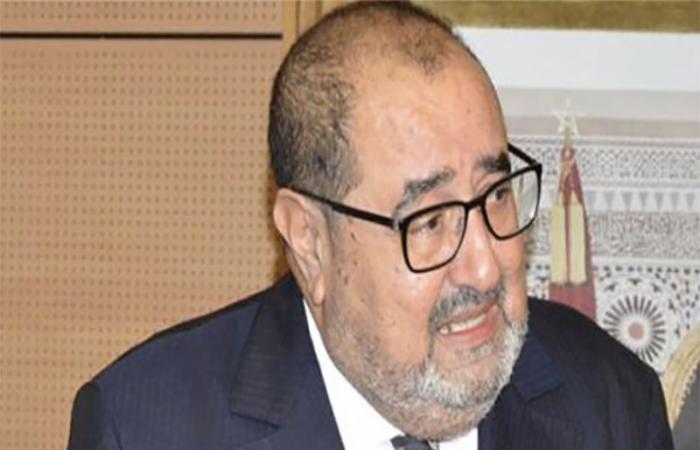During the ninth regional congress of the Socialist Union of Popular Forces (USFP) in Oujda, Driss Lachgar, the lion of the party, roared with unequaled fervor. In a flamboyant speech, punctuated with harsh criticism and scathing reprimands, Lachgar attacked the Executive, without forgetting to recall that the USFP, despite its long periods of hibernation, remains an essential player on the political scene. Moroccan. Ah, the indomitable charm of nostalgia and selective memory when it holds us…
It is fascinating to see how political outrage becomes a national sport, practiced with rare elegance. Driss Lachgar, like a master at arms, brandished his criticisms against the Executive, denouncing the weaknesses and shortcomings of the current government team. But isn’t this a spectacle of déjà vu? A bit like an old film that we watch with guilty tenderness, even though we already know the ending.
It is, however, fascinating to note how skillfully the USFP handles constructive criticism. Imagine applauding government strategies with your left hand while pointing your finger at their clumsy execution with your right hand. Driss Lachgar, like a political tightrope walker, manages to walk this tightrope, praising, on the one hand, the noble intentions of the Executive, while deploring, on the other, their chaotic implementation. Ah, the beauty of opposition politics…
Oujda, scene of a rebirth or a final act?
It must be said, attacking the Executive is almost too easy. It’s a bit like shooting an ambulance, or blaming winter for being cold. But Lachgar, with his oratorical talent, was able to transform this understandable target into a flamboyant rhetorical exercise. Yet behind these powerful words lies a more subtle question: What if this criticism is just a smokescreen, an elegant way to distract from the USFP’s own inadequacies?
Oujda, this city at the crossroads of cultures and histories, was chosen for this congress. A coincidence ? Certainly not. It is here that Lachgar hopes, like the phoenix, to see the USFP rise from its ashes. But behind this ambition lies a darker reality. Because if the USFP wants to be the champion of renewal, it is still struggling to convince a population increasingly disillusioned by broken promises and fiery speeches with no future.
While Driss Lachgar rages against the Executive, the real question remains: is the USFP still capable of meeting the expectations of a rapidly changing Morocco? Its members, loyal but increasingly rare, look at their leader with admiration mixed with skepticism. Because the time is no longer for grand speeches, but for concrete actions. And, if history has taught us anything, it is that words, however powerful they may be, are no longer enough to shape the future.
A congress in Oujda: what next?
The city of Oujda, with its rich history and contemporary challenges, seems to be the perfect setting for this political melodrama. Lachgar, by evoking the glorious past and the sacrifices of Ittihadi activists, seems to want to resurrect an era when the USFP was a beacon of national politics. However, behind this flamboyant rhetoric lies a much more mundane reality: the struggle for renewed relevance in an ever-changing political landscape.
The end of this congress in Oujda leaves a bitter taste. Not because the speeches lacked verve, but because they resonated like a distant echo of a bygone era. Driss Lachgar, despite his undeniable talent, must now face a ruthless reality: that of a world in which words are no longer enough to mask the shortcomings and where action becomes the only true measure of success.
There you have it, a glimpse of the tragic grandeur of the political scene here, where the actors, although talented, sometimes seem to be playing a play whose outcome has already been written. But isn’t that the timeless charm of politics? A perpetual dance between hope and disillusionment, where each step reminds us that real change does not happen in words, but in actions.
Criticism of implementation: An exercise in style?
Driss Lachgar has made criticism of government implementation his hobby horse. He does not hesitate to denounce the “failing institutional choices” which, according to him, have slowed down the development of the Oriental region. It’s almost tragic how great strategies can be ruined by clumsy execution. However, isn’t that a refrain we’ve already heard many times? Criticism of implementation has become the favorite stylistic exercise of those who, while sympathetic to the broad outlines, find themselves disappointed by the details.
In short, this ninth Provincial Congress of the USFP in Oujda offered a perfect scene for Driss Lachgar, master of rhetoric and double discourse, to applaud the strategies while castigating their implementation. This is the very essence of oppositional politics, which, too often, resembles a scene from the theater of the absurd. However, isn’t it this very absurdity that makes politics so fascinating?






